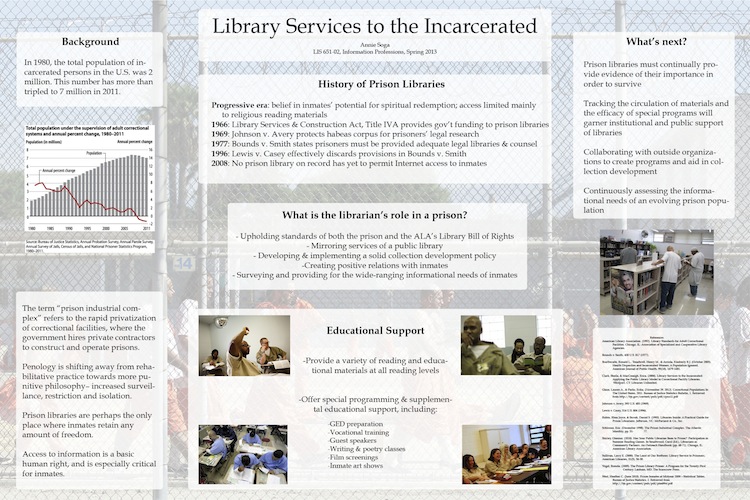In 2011, the total population of incarcerated persons in the United States was 7 million, having more than tripled since 1980. This rapid expansion is often linked to the privatization of correctional facilities. This “prison industrial complex” is changing the face of penal philosophy. Prisons are turning away from rehabilitative practices towards those that establish further authority over their inmates, by way of increased surveillance, isolation, and restriction. The philosophy of libraries contrasts sharply with this penological shift. This research project explores what the role of a prison librarian is, and how they must work between two oppositional institutions to uphold the informational rights of inmates. Through careful collection development, planning and implementation of special programming, and collaboration with institutional authorities, libraries can play a powerful role in prisons. Their services are critical– access to information often improves an inmates’ chance at rehabilitation and re-entry into the general population. As penology continues to evolve, so must prison libraries. An awareness of how to work within the confines of current prison policy, and an ability to track the efficacy of library programming will be critical to prison libraries’ survival.

